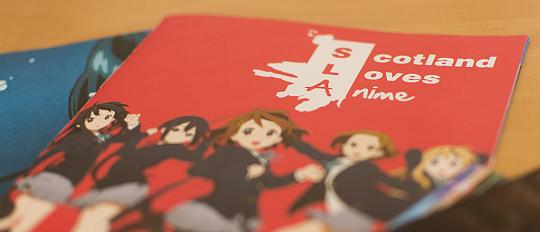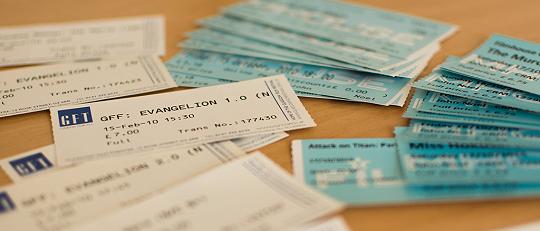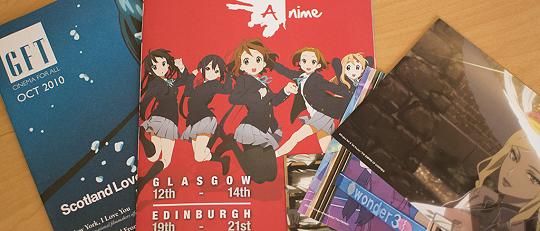I’m off to the Edinburgh leg of the annual Scotland Loves Anime this week and the festival is important enough to me to drag me out of my self-imposed writing moratorium. So a look back as to why, and some thoughts on the significance of the festival as a whole.
I’ve been going to Scotland Loves Anime (SLA) more or less since started, I even have a ticket stub from the Evangelion 2.0 premiere in 2010 that I want to believe was the starting pistol shot for the festival. But it’s more than a sense of obligation why I (try and) attend every year.
I grew up in Scotland despite not being Scottish myself and although I don’t have the fondest memories from that time (peculiar English teenager during the devolution movement, natch), Edinburgh and Glasgow are phenomenal places and going to at least one of them every year is a little like going home, and lot like going on holiday.
More importantly though: going to an anime film festival places me in the middle of a crowd of people who adore anime. That seems like an odd statement when anime fandom, especially in the west, tracked with the growth of the internet and there are innumerable, supremely popular online communities just a URL away. These are people though who have made the journey, short or long, to attend premieres, classics, interviews and all points in between for a medium they love.
That tangible, communal aspect is something that I miss from my University days in the Sheffield Anime Society when I could meet people of hugely varying tastes and opinions. Nowadays it seems so easy to slip into the internet echo chamber, comfortable hearing those agreeable opinions and theories and all too easy to ignore any others. Crunchyroll perhaps came closest to emulating a live meeting of fans with their recent Twitch marathons, pulling in thousands of simultaneous viewers for wildly varying shows. A shame then that it devolved into a kind of colosseum-like braying of pogchamps and unintelligible chants scrolling by thick and fast.
The potent cocktail of acute social anxiety and introversion means that a lot of the community aspect I get from attending SLA is passive. Standing furtively in line for the next showing, overhearing fragments of conversations on best girl, spying flashes of mobile games, the odd jangle of a recognisable ringtone. This despite being invited on as a judge in 2015 and I still can’t seem to find the fortitude to say a simple hello the festival organiser.
But the energy of the crowd is there, whether it’s glowsticks and inflatables for the Love Live movie, cosplay for the Haruhi movie or just the pungent anticipation for the live action Attack on Titan; I feel breaking from armchair criticism and beard-stroking analysis is of vital importance, especially when watching anime is usually a solitary pursuit.
Drawing that kind of crowd is testament to the quality of the festival programme on offer and there has nary been a dud offering. A tricky feat to maintain at the best of times, but especially so when it relies upon uneven release schedules; but the mix of bleeding edge releases (Nerawareta Gakuen in 2012 was a global premiere) to selected classics (Tokyo Godfathers and Venus Wars this year) and the always insightful introductions by Jonathan Clements has so far been a successful and recurring recipe.
In that sense then going to SLA is like going to a restaurant. My stay-firmly-at-home anime diet might be well balanced, but stepping out and eating at interesting places surrounded by different people (whom, yes, I attempt to avoid eye contact with) is important. Important as a remembrance of an enthusiasm that can often be forgotten in the churn of season after season of shows. Important because putting a face and a voice to an opinion rather than just a username and an anime girl avatar is a reminder there’s more than just memes and platitudes. And it’s important to support not only the still niche medium, but the effort and care it takes to repeatedly put on such a well run festival.
So thank you SLA. Long may you continue.


